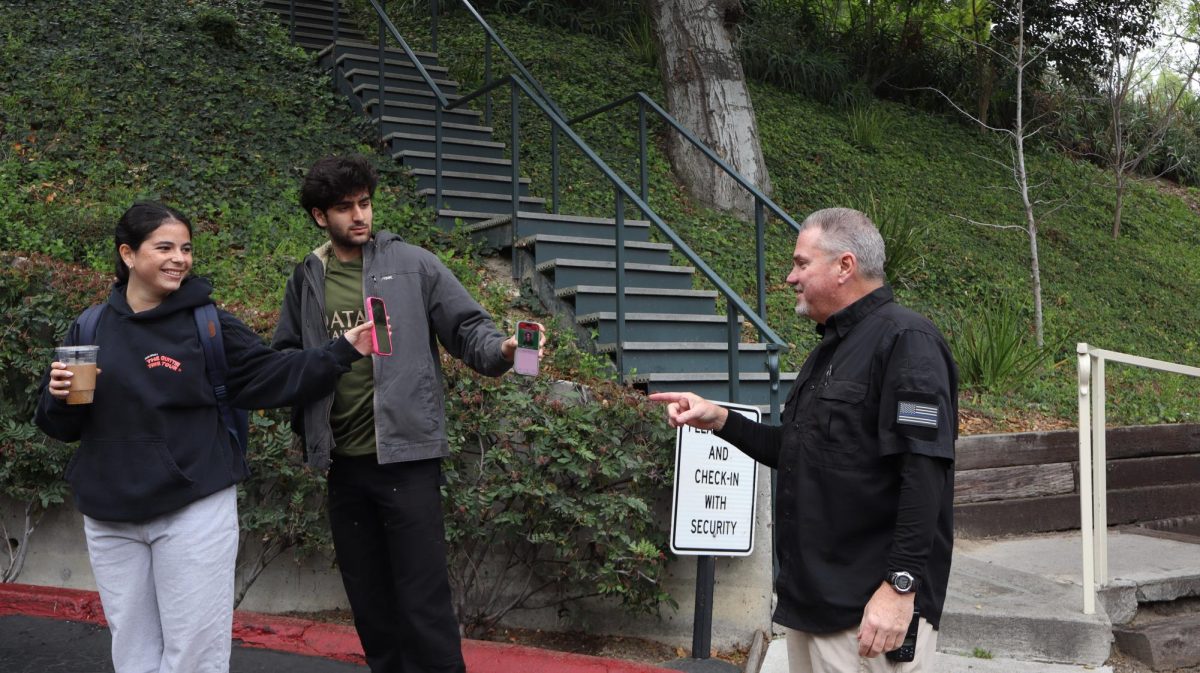By Michelle Nosratian
Compared to other Los Angeles high schools, both public and private, Harvard-Westlake students read fewer books per year on average in their English courses.
“The three hour per week homework rule imposes limitations on how much reading we can give,” upper school English teacher Geraldine Harding said. “It also comes out of concern for student workload. For example, if we assigned you one book a week, could you realistically be expected to have time to read it?”
Jarred Green â11 agrees with Harding.
“Iâm a pretty slow reader actually, so I donât know if Iâd be able to fit more books into my schedule, especially with all the other homework,” he said.
“Sometimes I wish that we could read just one or two more books and see what happens but for people who are slow readers,” Arielle Basich â11 said. “English reading coupled with history and language becomes a lot for them and they often just donât do it.”
Cutting down on reading as a reaction to homework surveys has also affected the history department.
Literature such as “Incidents in the Life of a Slave Girl,” by Harriet Jacobs, and “Babbitt,” by Sinclair Lewis, used to be part of the required reading for the junior American history classes, history teacher Drew Maddock said.
“We cut the reading load back pretty dramatically over probably the past five or six years as a response to homework surveys,” he said. “Anywhere from a quarter to a third of the reading was cut out of the course.”
At Santa Monica High School, students read about ten books for class, in addition to the two books they are required to read over the summer, according to the schoolâs website.
The public high school offers five courses and eight electives in English.
“Our program is built around this notion that you have to study a work in depth to give students real space and let them come up with their own insight,” Head of the English Department Laurence Weber said. “Students are invited to be authorities in the inquiry as much as the teachers, and to stuff a program with many works, that authority shifts to the teacher to get through it, to say what âneedsâ to be said.”
“One of the consequences of doing detailed analysis is that itâs a very slow process,” Maddock said. “When I used to teach at a public school, it was a longer school year, we had classes five days a weekâ¦so thatâs a lot of extra time. You could easily fit in one or two additional novels.”
Marlborough, however, has a similar calendar to Harvard-Westlake, and courses there still manage to cover an average of seven books per class in addition to poetry, short stories and essays.
Marlborough offers 18 English courses for grades 10 to 12, according to its English Department Head, Joseph Koetters.
At Harvard-Westlake, students read approximately six novels per year. The Upper School offers seven English courses in total, and only two of those are electives.
“We are interested in offering students choice and weâll be looking into that, especially a senior program,” Weber said. “In our department meeting last week, I brought up the idea of looking into making a senior elective program to create more options.”
Weber stresses that the English department would like to “grow [the program] responsibly.” He added that because students are required to take English classes throughout their high school career, “personnel becomes an issue.”
“We have to cover our regular courses with the teachers we have,” he said.
The difference in the amount of reading occurs partially because “there are guidelines, but no rules” limiting the amount of homework teachers at Malborough can give, Koetters said.
“The guidelines range from 30 minutes in seventh grade to one hour in an AP class,” Koetters said. “We have an all-school book which everyone reads each summer and each grade level also reads a book over the summer.”
Eve Bilger â10 came to Harvard-Westlake from Marlborough in her junior year.
“The emphasis is on different elements of writing,” Bilger said. “English [at Marlborough] is very open and discussion based, open to interpretation and ideas.”
“You canât really do everything,” Maddock said. “But what I miss most notably is Huckleberry Finn, which was actually taught here for a long period of time,” Maddock said.
Maddock assigned “The Adventures of Huckleberry Finn” to his own daughter, Molly Maddock â09, to read over the summer when he realized that it had been dropped from the English curricululm.
“âHuck Finnâ is one of the essential American classics that is taught in almost any American literature course,” he said.






























